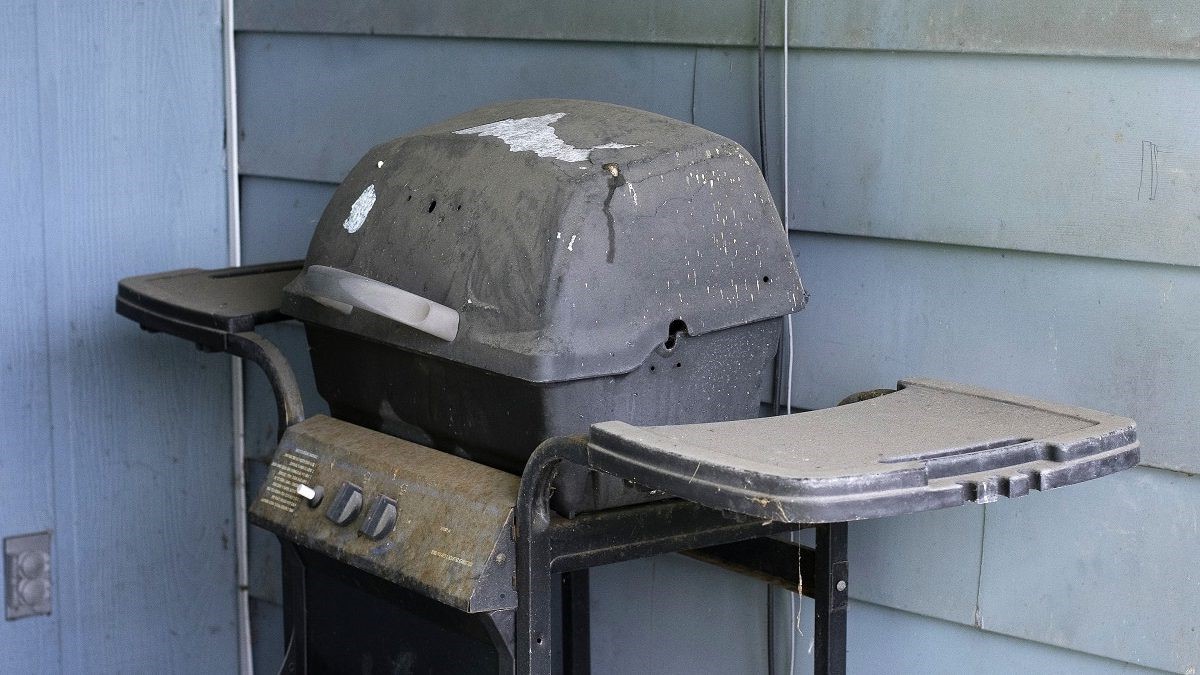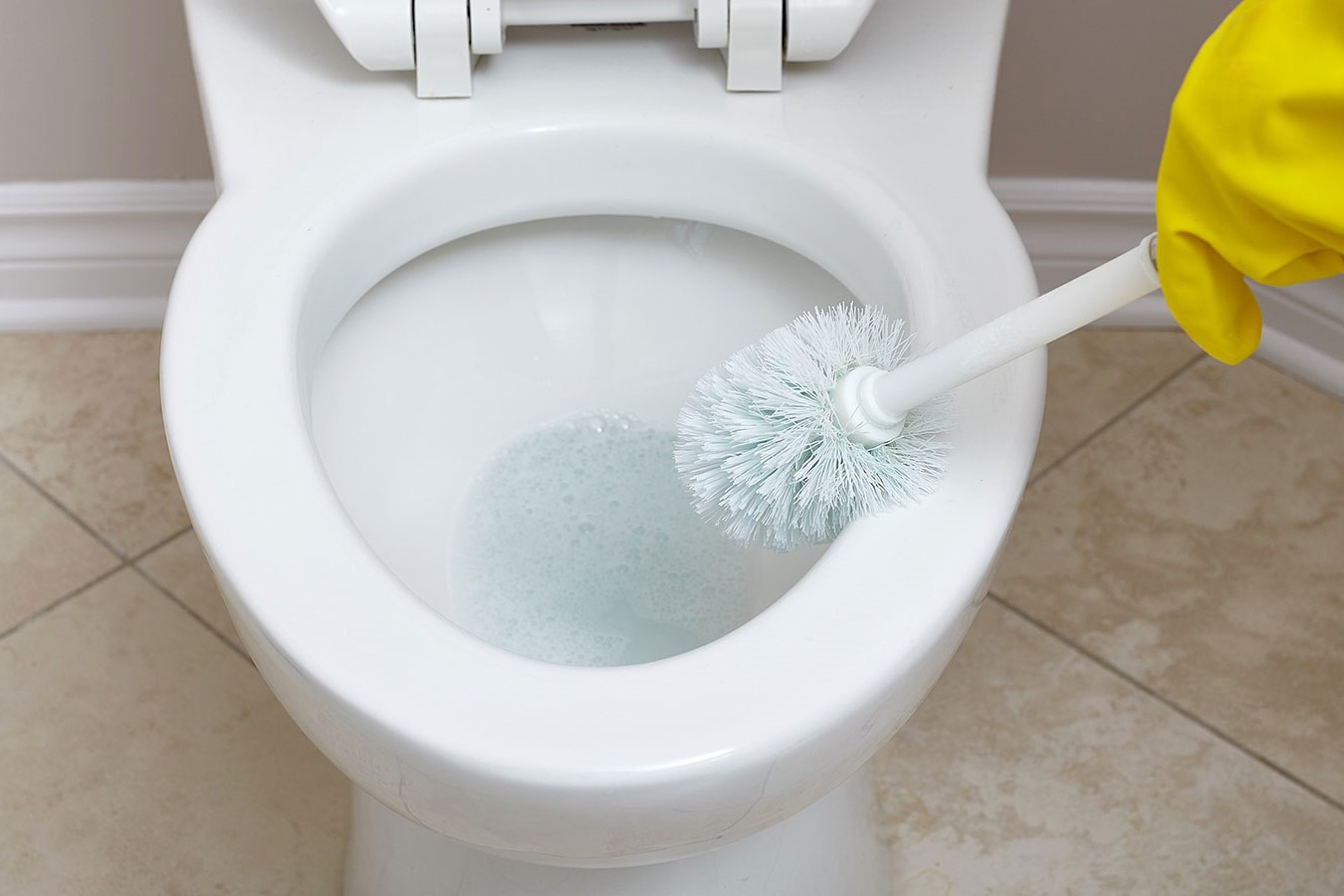Home>Home and Garden>How To Get Rid Of Burnt Smell In House


Home and Garden
How To Get Rid Of Burnt Smell In House
Published: March 4, 2024
Learn effective ways to eliminate burnt smell in your house with our expert tips and tricks. Discover simple home and garden remedies to get rid of the lingering odor.
(Many of the links in this article redirect to a specific reviewed product. Your purchase of these products through affiliate links helps to generate commission for Noodls.com, at no extra cost. Learn more)
Table of Contents
Introduction
Dealing with a burnt smell in your house can be a distressing experience. Whether it's the result of a cooking mishap, a forgotten candle, or an electrical issue, the lingering odor can permeate the air and cling to surfaces, creating an unpleasant environment. The good news is that there are effective ways to tackle this issue and restore a fresh, inviting atmosphere to your home.
In this comprehensive guide, we will explore the various causes of burnt smells in the house and provide practical solutions to eliminate them. From immediate actions to natural remedies and commercial products, we'll cover a range of strategies to help you banish the unwanted odor. Additionally, we'll delve into preventive measures to ensure that you can avoid encountering this problem in the future.
Whether you're a seasoned homeowner or a first-time renter, understanding how to effectively address burnt smells is essential for maintaining a comfortable living space. By following the tips and techniques outlined in this article, you'll be equipped with the knowledge and tools to combat burnt odors and keep your home smelling fresh and clean. Let's dive into the details and discover how to get rid of that stubborn burnt smell once and for all.
Read more: How To Get Burnt Smell Out Of Microwave
Understanding the source of burnt smell
The presence of a burnt smell in your house can stem from various sources, each requiring a different approach for effective elimination. Understanding the potential causes of burnt odors is crucial in determining the most appropriate course of action. Here are some common sources of burnt smells in the home:
-
Cooking Incidents: Burnt food is a frequent culprit behind lingering odors in the kitchen and surrounding areas. Overcooking, leaving food unattended on the stove, or using incorrect cooking temperatures can lead to the development of a strong burnt smell that permeates the entire house.
-
Electrical Malfunctions: Electrical issues such as overloaded circuits, faulty wiring, or malfunctioning appliances can generate a distinct burnt odor. If you detect a burning smell that seems to originate from an electrical source, it's essential to address the problem promptly to prevent potential fire hazards.
-
Smoke and Soot: Accidental fires, whether small or large, can leave behind a pervasive burnt smell. Even after the flames have been extinguished, the residual smoke and soot particles can linger in the air and settle on surfaces, emitting a persistent burnt odor.
-
Candles and Incense: While candles and incense can create a cozy ambiance, they also pose a risk of causing burnt smells if left unattended or if the flame comes into contact with nearby objects. The resulting odor can be challenging to eliminate, especially if it has permeated porous materials.
-
Household Accidents: From scorched fabrics due to ironing mishaps to burnt toast in the toaster, household accidents can quickly give rise to unpleasant burnt odors. These incidents often require immediate attention to prevent the smell from spreading throughout the house.
By identifying the specific source of the burnt smell, you can tailor your approach to effectively address the issue. Whether it involves addressing cooking mishaps, resolving electrical concerns, or mitigating the aftermath of a small fire, understanding the source of the burnt smell is the first step toward restoring a fresh, pleasant atmosphere in your home.
Immediate actions to take
When you detect a burnt smell in your house, taking immediate action is crucial to prevent the odor from permeating further and to address any potential safety hazards. Here are the essential steps to take when dealing with a burnt smell:
-
Ventilation: Open all windows and doors to allow fresh air to circulate throughout the house. This helps in dissipating the burnt odor and improving air quality. Additionally, turning on fans and exhaust systems can facilitate the removal of lingering odors, especially in the kitchen or areas where the burnt smell is concentrated.
-
Identify the Source: Quickly pinpoint the source of the burnt smell. Whether it's a forgotten pot on the stove, a malfunctioning appliance, or a small fire incident, identifying the origin of the odor is crucial for determining the appropriate course of action.
-
Remove the Cause: If the burnt smell is the result of a cooking mishap, promptly turn off the stove or oven and remove the burnt food from the heat source. For electrical issues, such as a malfunctioning appliance emitting a burnt odor, unplug the device and refrain from using it until the problem is resolved. In the case of a small fire, ensure that the flames are extinguished and the affected area is secured.
-
Clean Surfaces: Wipe down surfaces near the source of the burnt smell to remove any visible residue or soot. Use a damp cloth or mild cleaning solution to eliminate any lingering particles that may contribute to the odor.
-
Utilize Natural Odor Absorbers: Place bowls of white vinegar, baking soda, or activated charcoal in the affected areas to help absorb and neutralize the burnt odor. These natural odor absorbers can be effective in reducing the intensity of the smell while you address the underlying cause.
-
Seek Professional Assistance: If the burnt smell is persistent or if you suspect a more serious underlying issue, such as electrical problems or fire damage, it's essential to seek professional assistance. Contacting a qualified electrician or fire restoration specialist can help ensure that any potential safety risks are addressed and that the source of the burnt smell is thoroughly resolved.
By taking these immediate actions, you can effectively mitigate the impact of a burnt smell in your house and lay the groundwork for implementing additional remedies to eliminate the odor. Promptly addressing the issue not only helps in restoring a pleasant environment but also contributes to maintaining a safe and healthy living space for you and your family.
Natural remedies to eliminate burnt smell
When it comes to combating a stubborn burnt smell in your house, natural remedies offer effective and environmentally friendly solutions. These methods not only help neutralize the odor but also contribute to creating a healthier indoor environment. Here are several natural remedies to consider for eliminating burnt smells:
1. White Vinegar
White vinegar is renowned for its odor-absorbing properties. Place bowls of white vinegar in the affected areas to help neutralize the burnt smell. The acidic nature of vinegar aids in breaking down and dissipating the odor molecules, gradually reducing the intensity of the burnt odor. Additionally, you can create a natural cleaning solution by diluting white vinegar with water and using it to wipe down surfaces where the burnt smell lingers.
Read more: How To Get Rid Of Sugar Ants
2. Baking Soda
Baking soda is a versatile natural deodorizer that can effectively combat burnt odors. Sprinkle baking soda on carpets, upholstery, and other porous surfaces affected by the burnt smell. Allow the baking soda to sit for several hours or overnight to absorb the odor, then vacuum it up to remove the residual particles. Baking soda can also be used to deodorize fabrics by adding it to the laundry during the washing cycle.
3. Activated Charcoal
Activated charcoal is known for its exceptional odor-absorbing capabilities. Place activated charcoal sachets or containers in the areas where the burnt smell is prevalent. The porous structure of activated charcoal enables it to trap and neutralize odor molecules, helping to eliminate the lingering burnt odor. This natural remedy is particularly effective in enclosed spaces such as closets, cabinets, and drawers.
4. Citrus-Based Cleaners
Citrus-based cleaners, derived from natural citrus extracts, offer a refreshing and effective approach to combating burnt odors. The natural acidity and pleasant fragrance of citrus oils can help neutralize and mask the burnt smell. Use citrus-based cleaning sprays or solutions to wipe down surfaces and freshen the air in the affected areas. The uplifting citrus scent can help counteract the unpleasant burnt odor, leaving behind a cleaner and more inviting environment.
5. Fresh Air and Sunlight
Harness the power of fresh air and sunlight to naturally eliminate burnt odors. Open windows and doors to allow fresh air to circulate throughout the house, facilitating the removal of lingering odors. Additionally, exposing affected fabrics and upholstery to direct sunlight can help dissipate the burnt smell. Sunlight not only helps in deodorizing fabrics but also contributes to reducing moisture and inhibiting the growth of odor-causing bacteria.
By incorporating these natural remedies into your odor-elimination strategy, you can effectively combat burnt smells while promoting a healthier and more pleasant living environment. These natural solutions offer a safe and sustainable approach to tackling odors, ensuring that your home remains fresh and inviting.
Read more: How To Get Rid Of Grasshoppers
Using commercial products to remove burnt smell
Commercial products specifically designed to eliminate odors can offer effective solutions for removing burnt smells from your home. These products are formulated to target and neutralize stubborn odors, providing a convenient and efficient way to restore a fresh and pleasant atmosphere. When selecting commercial odor-removal products, consider the following options:
1. Odor Neutralizing Sprays
Odor neutralizing sprays are designed to combat a wide range of odors, including burnt smells. These sprays contain specialized formulas that work to neutralize odor molecules, effectively eliminating the source of the unpleasant smell. When using odor neutralizing sprays, ensure that the affected areas are thoroughly treated to achieve optimal results. Additionally, look for sprays with natural or non-toxic ingredients to minimize environmental impact.
2. Air Purifiers and Ionizers
Air purifiers equipped with odor-eliminating filters and ionizers can significantly improve indoor air quality by removing airborne particles and neutralizing odors. Look for air purifiers specifically designed to target odors, and consider placing them in areas where the burnt smell is most prevalent. Ionizers, in particular, release negatively charged ions that bond with odor-causing particles, effectively reducing the presence of burnt odors in the air.
3. Odor Absorbing Gels and Beads
Odor-absorbing gels and beads offer a long-lasting solution for combating burnt smells. These products work by absorbing and neutralizing odors, providing continuous odor control in enclosed spaces. Place odor-absorbing gels or beads in areas where the burnt smell lingers, such as closets, bathrooms, or kitchens. Look for products with a pleasant fragrance to enhance the overall ambiance of the space.
Read more: How To Get Rid Of Yellowjackets
4. Carpet and Upholstery Cleaners
For burnt smells that have permeated carpets and upholstery, specialized cleaners designed to remove odors from fabric surfaces can be highly effective. These cleaners often contain enzymatic formulas that target and break down odor-causing molecules, effectively eliminating the burnt smell from fabrics. Follow the manufacturer's instructions for application and ensure proper ventilation during and after the cleaning process.
5. Scented Candles and Diffusers
Scented candles and diffusers can help mask and replace burnt odors with pleasant fragrances. Opt for candles and diffusers with natural essential oils or soy-based wax to minimize the release of harmful chemicals. Select fragrances that complement the ambiance of your home while effectively neutralizing the burnt smell. Place scented candles and diffusers strategically in areas where the burnt odor is noticeable to enhance the overall olfactory experience.
By incorporating these commercial products into your odor-elimination strategy, you can effectively combat burnt smells and restore a fresh, inviting atmosphere to your home. When using commercial products, always follow the manufacturer's instructions and consider environmentally friendly options to minimize the impact on indoor air quality and the environment.
Preventing burnt smell in the future
Preventing burnt smells in the future involves implementing proactive measures to minimize the risk of cooking mishaps, electrical malfunctions, and other potential sources of burnt odors. By adopting the following preventive strategies, you can create a safer and more odor-resistant environment in your home.
1. Kitchen Safety Practices
Establishing kitchen safety practices is essential for preventing burnt smells resulting from cooking incidents. Always attend to food on the stove or in the oven to prevent overcooking or burning. Use timers to monitor cooking times and avoid distractions while cooking. Additionally, familiarize yourself with the appropriate cooking temperatures for different dishes to prevent charring or scorching.
Read more: How To Get Rid Of Cowlicks
2. Regular Appliance Maintenance
Regular maintenance of kitchen appliances, such as stoves, ovens, and toasters, can help prevent electrical malfunctions that may lead to burnt odors. Inspect and clean appliances regularly to remove any accumulated food debris or grease that could potentially cause smoke or burning odors. Address any signs of electrical issues, such as unusual smells or malfunctions, by seeking professional appliance repair services promptly.
3. Fire Safety Precautions
Implementing fire safety precautions is crucial for minimizing the risk of burnt smells resulting from accidental fires. Install and regularly test smoke detectors throughout your home to ensure early detection of potential fire hazards. Keep flammable materials away from heat sources, and never leave candles, incense, or cooking appliances unattended. Familiarize yourself and your family with fire escape plans and safety procedures to mitigate the impact of potential fires.
4. Proper Candle Usage
When using candles or incense, practice proper usage and placement to prevent burnt smells. Always place candles on stable, heat-resistant surfaces away from flammable materials. Use candle holders or containers designed for candle use to contain wax drips and prevent accidental fires. Extinguish candles before leaving the room or going to bed to minimize the risk of generating burnt odors.
5. Electrical System Inspections
Regular inspections of the electrical system in your home can help identify and address potential hazards that may lead to burnt smells. Schedule professional electrical inspections to assess the condition of wiring, outlets, and electrical panels. Address any signs of electrical issues, such as flickering lights, burning odors, or tripping circuits, promptly to prevent potential fire hazards and burnt smells.
By incorporating these preventive measures into your daily routines and home maintenance practices, you can significantly reduce the likelihood of encountering burnt smells in the future. Creating a safe and proactive living environment not only minimizes the risk of unpleasant odors but also contributes to the overall well-being and comfort of your household.
Conclusion
In conclusion, addressing a burnt smell in your house requires a combination of immediate actions, natural remedies, and preventive measures. By understanding the various sources of burnt odors and implementing targeted strategies, you can effectively eliminate the unpleasant smell and create a fresh, inviting atmosphere in your home.
When faced with a burnt smell, it is crucial to take immediate actions such as ventilation, identifying the source, and removing the cause to prevent the odor from spreading and address any potential safety hazards. Utilizing natural remedies, including white vinegar, baking soda, activated charcoal, citrus-based cleaners, and fresh air, offers environmentally friendly and effective solutions for neutralizing burnt odors. Additionally, incorporating commercial products such as odor neutralizing sprays, air purifiers, and scented candles can provide convenient and efficient ways to combat stubborn odors.
Furthermore, preventing burnt smells in the future involves establishing kitchen safety practices, conducting regular appliance maintenance, implementing fire safety precautions, practicing proper candle usage, and scheduling electrical system inspections. These proactive measures contribute to creating a safer and more odor-resistant environment, minimizing the risk of encountering burnt smells in your home.
By following the comprehensive guide outlined in this article, you are equipped with the knowledge and strategies to effectively address burnt smells and maintain a fresh, pleasant living space. Whether it's mitigating the aftermath of a cooking mishap, addressing electrical concerns, or preventing potential fire hazards, the proactive approach to combating burnt odors ensures that your home remains a comfortable and safe environment for you and your family.
Incorporating these strategies into your daily routines and home maintenance practices not only eliminates burnt odors but also contributes to the overall well-being and comfort of your household. With a proactive mindset and the right tools at your disposal, you can confidently tackle burnt smells and enjoy a revitalized living space free from unpleasant odors.










